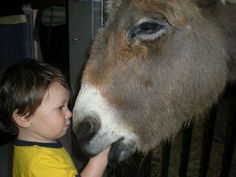Funny kids
Why children do not behave and what you can do about it. We are facing a crisis of self-regulation, "writes Lewis, adding" we "to parents and teachers who daily face the difficult behavior of children in their lives.
Lewis, a journalist, certified educator and mother of three, asks why so many children today have difficulty controlling their behavior and emotions.
He contributed three main factors to this crisis.
First, he changed where, how and how many children can play. Second, his access to technology and social networks exploded.
Finally, according to Lewis, children today are too "unemployed". This is not just a casual summer job for a teenager in high school. The term is a big tent, and it also uses tasks that can help babies develop self-confidence and a sense of community.
1. Know your child
A big part of the puzzle here is that you really need to know your child. Will your daughter get angry when she gets sick? Is your son a pill if he loses his team? You sometimes have to be a parenting researcher. Ask yourself, "Does my child have a difficult time at school, a fascination with a partner, or is your child molested by other students at school?" If you know that your child is helping you to find out if something is happening quickly - such as losing a team - or something that may get harder - like stubborn, rude behavior.
2. Talk to your child
Sometimes you can not relate to something outside - everything looks normal, but your baby is in a mood that lasts for days. In some cases, it is best to talk to them first. The beginning of this conversation depends on your child's age, but it's always better to say that you've noticed that it looks less happy than before. Or I was worried about them because they were used to loving things more. Listen to what your child says. If you can not determine the error, contact your teacher or other relatives, depending on your child's age. Sometimes you can learn how children generally behave in the group or class of their child. You may not know a lot of bullying in your school.
3. does not give the strength of behavior
While it's good to know why your child behaves, it's also important not to give him too much energy. If your child has developed a bad attitude, is rude and disrespectful to you, it's best not to bite the hook. Keep the expectations in your home clear: "In our family, we treat each other with respect." Do not fight for power and do not argue with the problem - remember that you do not have to take part in every fight you've been invited to. If your child has acted, wait until it calms down and you can have a negative impact on his behavior, if warranted. But do not give back your bad posture or counterweight now, as it just teaches your child to press the buttons.
4. Cancel and do not respond
Like most of us, you may have reacted with your child the same way every time it acted and did nothing right. So take the time to think about what's being asked in the job. "What direction do I have to go here, what does my child need from me now?" In "Total Shift" we talk about the need for parents to exercise, solve problems and limit their children. Whether he has a so-called "typical" child or someone who demands and works a lot.
So take some time, think about the current situation and plan what you will do because of inappropriate behavior. Is it a constant problem with your child or is it just a one-time event? Do you contact us immediately or do you start talking to your child? Use your endpoints to track what your child needs and what you need.




























































































































تعليقات
إرسال تعليق